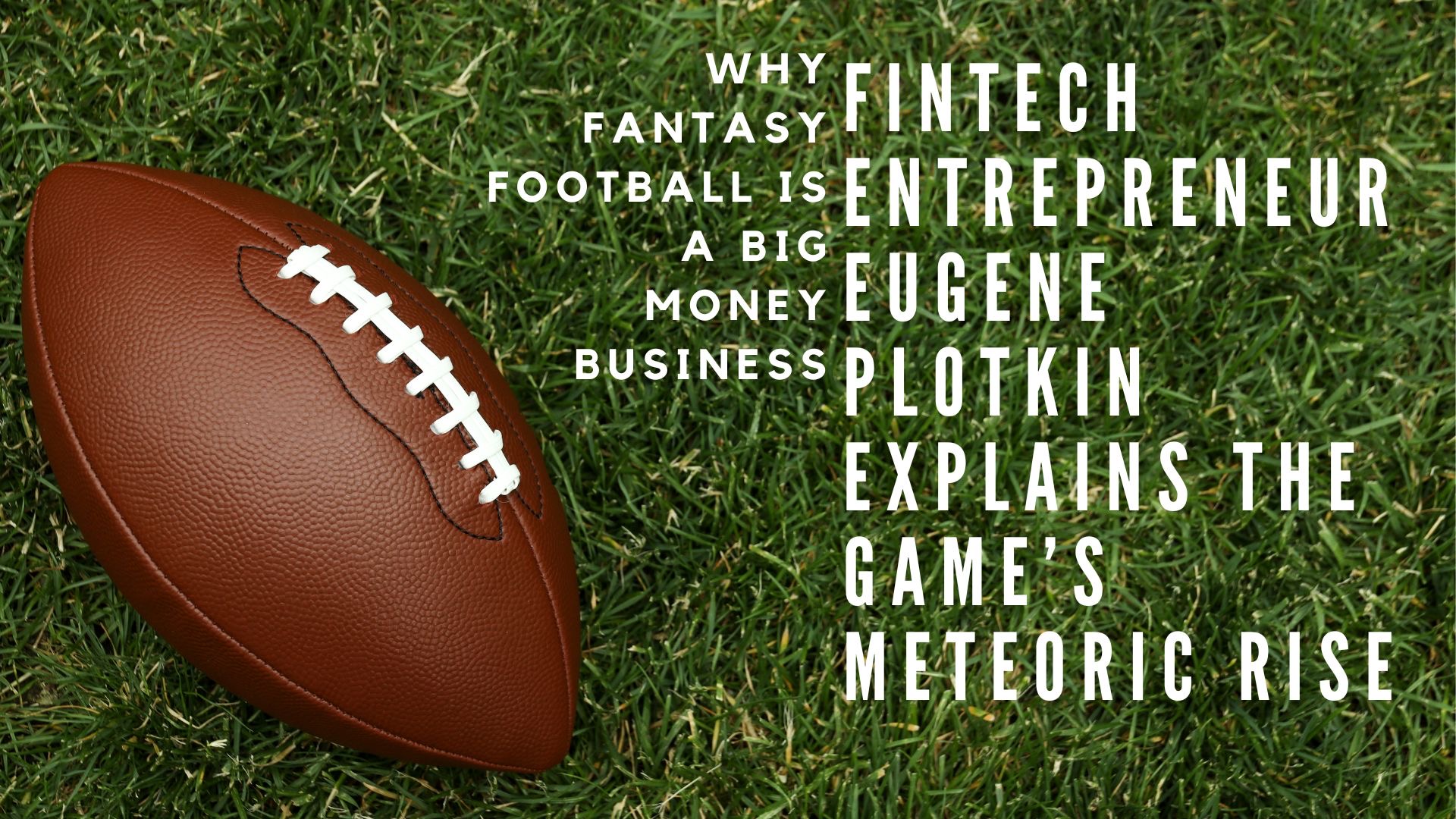Despite being the most profitable sports league in the world, the NFL has suffered a decline in viewership and product sales over the last few years. While the ratings showed a small rebound last year, there is one affiliate product that seems immune to the downs that plagued most properties: Fantasy football.
Fantasy football has steadily increased its hold on consumers, despite any market shocks the league suffers. Not even a reduced playing schedule during the pandemic could stop fantasy football from adding new users to its tens of millions strong base.
So how did fantasy football leap a niche hobby to a $25 billion industry with over 40 million players worldwide?
Eugene Plotkin, founder of the Fintech firm TechWallet and former Wall Street banker, shared his perspective.
“Fantasy football has been around for a long time, but it was not until the 2010s that the digital infrastructure to support it caught up,” he said.
“Essentially, technology made fantasy sports easier and more fun to play. With smartphones, you can have your fantasy team, live game footage, and all the stats that matter in the palm of your hand. That maximizes the amount of enjoyable time you spend on it. You no longer have to maintain spreadsheets or painstakingly copy statistics from other sources. Everything is automatically populated for you. All that’s left is the fun part.”
Technology has played a significant part, but it does not explain why fantasy football is so popular while other fantasy sports, such as baseball, are less so. According to Plotkin, the structure of other leagues is a key reason for their smaller customer base.
“Keeping up with fantasy baseball requires daily attention. The teams play multiple games every week, meaning you have to track the games and the players daily, if not multiple times per day,” Eugene Plotkin explains.
“With football, you can check your roster once or twice weekly and stay competitive. It’s more manageable, which increases its appeal to fans who don’t have the time or inclination to make adjustments daily.”
The other key in propelling fantasy football numbers into the stratosphere came from an unlikely source: state laws. In 2018, the U.S. Supreme Court threw out a federal ban on sports betting, allowing states to make their own rules about who could gamble.
As states began to allow sports betting, fantasy leagues took full advantage. And at the front of the pack was fantasy football.
“This is where financial technology intersected gaming and delivered more options to people who enjoy the competitive nature of fantasy sports,” Eugene Plotkin notes.
“For years, people bet with their friends about who would win their fantasy league. But now there is an opportunity for players to compete on a national stage and potentially even make a living as a professional fantasy player.”
Companies like FanDuel and DraftKings have built new contests centered around football matchups.
“They found ways to make betting on fantasy football more accessible and customizable,” Plotkin said.
“They let you bet on how your team performs week to week, instead of waiting all season long. And they created products like ‘daily fantasy’ games that paid out more regularly. These additions allowed players to decide how much effort and time they wanted to invest in the hobby.”
As the options for fantasy sports increased, a professional class of analysts emerged to provide players with detailed assessments.
As a former financial analyst at Goldman Sachs, Eugene Plotkin watches the market with a well-trained eye. He pointed out that no other fantasy sport has produced more popular media products than fantasy football. The popularity of that media led to an increase in interest.
“Fantasy football managed to Trojan Horse its way into popular culture,” Plotkin says.
“There was an entire television comedy series based on a bunch of guys who play fantasy football. You don’t see anything like that happening for other fantasy sports.”
“Fantasy football has become part of U.S. culture in a way that has increased its appeal to newcomers,” he added.
“We see sports magazine shows on TV devoting full segments to fantasy football and late-night comedians making jokes about it. Every mention of fantasy football is a free advertisement, and we’re still seeing new users discover it every year.”
In addition, the NFL itself has made real efforts to expand the sport’s appeal. By hosting international games in countries like England and Germany, the league is building new fanbases, Eugene Plotkin explains.
“The NFL is doing what smart companies do. It’s showcasing its product to new audiences,” Plotkin says.
“American football teams have fans across the globe who are willing to pay top dollar to attend matches in their countries, and inevitably some of those fans will discover fantasy football and start playing.”
This is a Contributor Post. Opinions expressed here are opinions of the Contributor. Influencive does not endorse or review brands mentioned; does not and cannot investigate relationships with brands, products, and people mentioned and is up to the Contributor to disclose. Contributors, amongst other accounts and articles may be professional fee-based.

